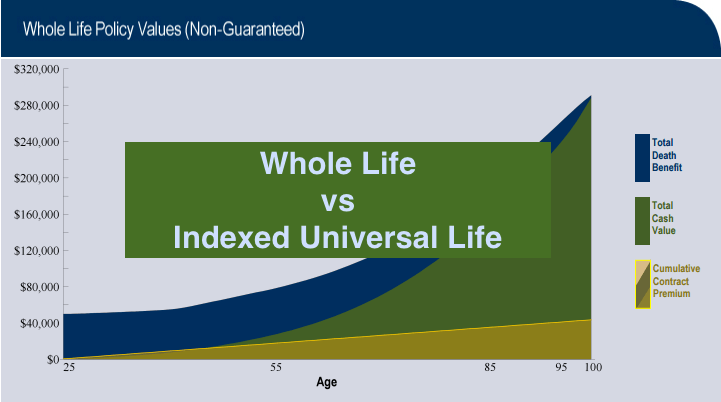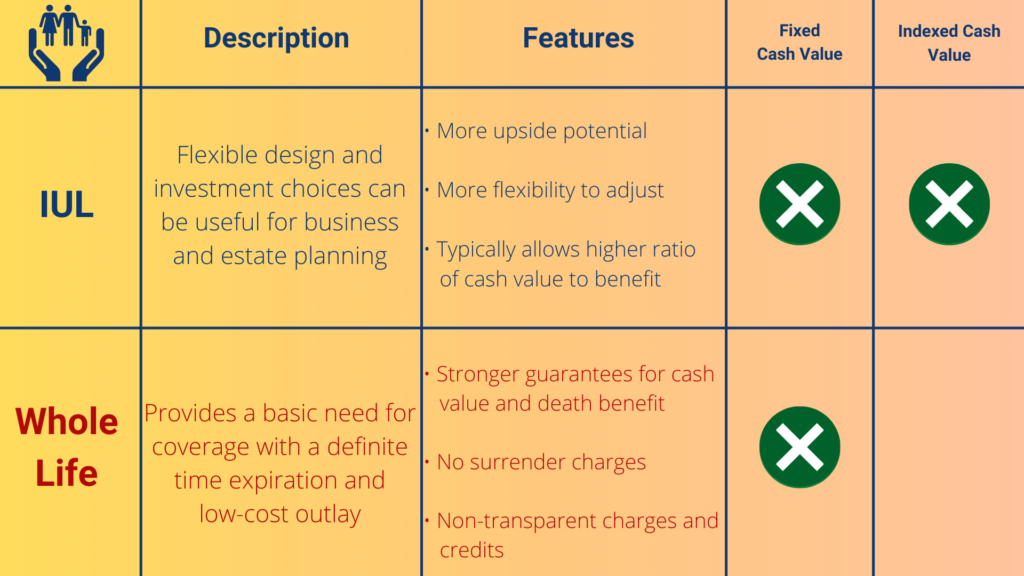All Categories
Featured
Table of Contents
Do they contrast the IUL to something like the Vanguard Total Amount Supply Market Fund Admiral Shares with no load, an expenditure ratio (ER) of 5 basis points, a turnover proportion of 4.3%, and a remarkable tax-efficient document of distributions? No, they contrast it to some dreadful actively managed fund with an 8% load, a 2% EMERGENCY ROOM, an 80% turnover ratio, and a horrible record of short-term resources gain circulations.
Mutual funds typically make yearly taxable distributions to fund owners, also when the worth of their fund has actually decreased in value. Shared funds not only call for revenue coverage (and the resulting annual tax) when the mutual fund is going up in worth, but can also enforce revenue taxes in a year when the fund has decreased in worth.
That's not how mutual funds function. You can tax-manage the fund, collecting losses and gains in order to decrease taxed distributions to the capitalists, but that isn't in some way mosting likely to transform the reported return of the fund. Just Bernie Madoff types can do that. IULs prevent myriad tax traps. The ownership of shared funds might call for the common fund owner to pay estimated taxes.

IULs are simple to position to ensure that, at the proprietor's death, the beneficiary is exempt to either income or estate taxes. The same tax decrease strategies do not function virtually as well with common funds. There are countless, typically expensive, tax traps connected with the moment buying and selling of common fund shares, traps that do not use to indexed life insurance policy.
Chances aren't really high that you're going to go through the AMT due to your common fund distributions if you aren't without them. The remainder of this one is half-truths at finest. While it is true that there is no revenue tax due to your successors when they inherit the profits of your IUL plan, it is also true that there is no revenue tax due to your successors when they acquire a common fund in a taxed account from you.
Group Universal Life Insurance Pros And Cons
The federal estate tax exemption limit is over $10 Million for a couple, and expanding annually with inflation. It's a non-issue for the substantial majority of physicians, a lot less the rest of America. There are better means to stay clear of inheritance tax problems than getting investments with low returns. Shared funds may cause income tax of Social Safety and security benefits.

The growth within the IUL is tax-deferred and might be taken as tax totally free revenue using fundings. The plan proprietor (vs. the mutual fund supervisor) is in control of his or her reportable income, therefore allowing them to lower or also get rid of the taxes of their Social Safety and security advantages. This is fantastic.
Here's an additional minimal problem. It's real if you purchase a common fund for say $10 per share right before the distribution date, and it distributes a $0.50 distribution, you are then going to owe taxes (possibly 7-10 cents per share) although that you haven't yet had any kind of gains.
In the end, it's really concerning the after-tax return, not exactly how much you pay in taxes. You are mosting likely to pay even more in tax obligations by utilizing a taxed account than if you get life insurance policy. You're also possibly going to have even more money after paying those tax obligations. The record-keeping needs for owning shared funds are dramatically extra complex.
With an IUL, one's records are maintained by the insurer, copies of annual declarations are mailed to the proprietor, and circulations (if any type of) are completed and reported at year end. This is also kind of silly. Of course you need to maintain your tax obligation documents in instance of an audit.
Life Insurance Stock Market
All you have to do is shove the paper right into your tax folder when it reveals up in the mail. Hardly a reason to acquire life insurance policy. It resembles this individual has never ever purchased a taxable account or something. Mutual funds are generally part of a decedent's probated estate.
On top of that, they undergo the hold-ups and expenditures of probate. The profits of the IUL plan, on the various other hand, is always a non-probate distribution that passes outside of probate directly to one's called recipients, and is as a result not subject to one's posthumous creditors, unwanted public disclosure, or comparable delays and costs.
We covered this under # 7, but just to wrap up, if you have a taxed common fund account, you must put it in a revocable trust fund (or perhaps easier, utilize the Transfer on Fatality designation) to avoid probate. Medicaid incompetency and life time earnings. An IUL can offer their owners with a stream of earnings for their whole lifetime, despite exactly how long they live.

This is valuable when arranging one's affairs, and transforming possessions to income before an assisted living facility arrest. Common funds can not be converted in a similar manner, and are virtually always considered countable Medicaid possessions. This is another silly one supporting that inadequate people (you understand, the ones who require Medicaid, a government program for the bad, to pay for their retirement home) need to use IUL as opposed to mutual funds.
Universal Life Insurance Company Phone Number
And life insurance policy looks terrible when compared relatively against a retirement account. Second, people that have cash to buy IUL above and beyond their retired life accounts are going to need to be dreadful at handling cash in order to ever before get approved for Medicaid to pay for their assisted living home costs.
Chronic and terminal ailment cyclist. All plans will allow an owner's easy access to money from their policy, typically forgoing any abandonment fines when such people experience a serious illness, require at-home treatment, or end up being confined to a nursing home. Shared funds do not provide a comparable waiver when contingent deferred sales charges still use to a shared fund account whose owner requires to market some shares to fund the costs of such a keep.
Iul Retirement Calculator
You obtain to pay more for that advantage (biker) with an insurance coverage plan. Indexed global life insurance coverage supplies death benefits to the beneficiaries of the IUL owners, and neither the owner nor the beneficiary can ever before lose cash due to a down market.
Currently, ask yourself, do you really need or want a survivor benefit? I certainly don't need one after I reach financial self-reliance. Do I want one? I suppose if it were inexpensive enough. Of program, it isn't low-cost. Generally, a buyer of life insurance coverage pays for the real cost of the life insurance policy benefit, plus the expenses of the plan, plus the profits of the insurance provider.
Maximum Funded Life Insurance
I'm not completely sure why Mr. Morais tossed in the entire "you can't shed money" again right here as it was covered quite well in # 1. He just intended to repeat the very best selling point for these points I suppose. Again, you do not shed nominal bucks, but you can shed real dollars, in addition to face major opportunity expense as a result of reduced returns.

An indexed global life insurance coverage policy owner may exchange their plan for a completely different plan without triggering revenue tax obligations. A mutual fund proprietor can not move funds from one shared fund company to an additional without offering his shares at the previous (therefore setting off a taxed occasion), and buying brand-new shares at the last, typically subject to sales charges at both.
While it holds true that you can exchange one insurance plan for one more, the reason that people do this is that the first one is such a terrible plan that also after getting a new one and experiencing the very early, negative return years, you'll still appear in advance. If they were marketed the best plan the first time, they shouldn't have any desire to ever exchange it and undergo the early, negative return years again.
Latest Posts
What Is Universal Life Insurance With Living Benefits
Guaranteed Universal Life Insurance Rates
Cheap Universal Life Insurance